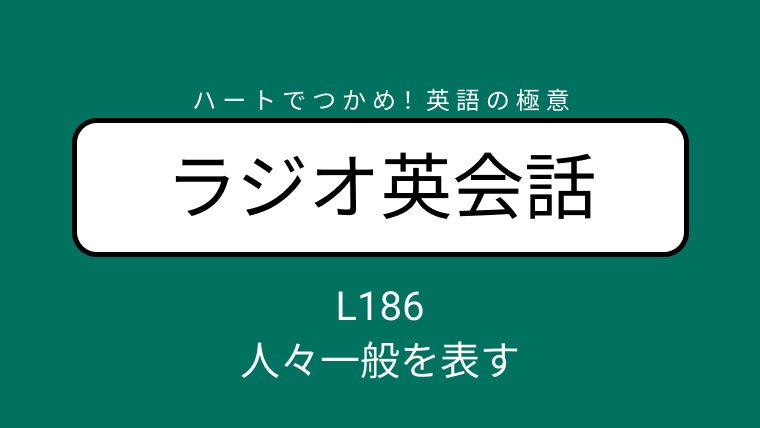NHKラジオ英会話のディクテーション「人々一般を表す」L186 2023/1/9

ディクテーション
講師陣の英会話を書きとり(スクリプト)
大西先生、クリスさん、ろーざさんの英会話部分を書きとってみましょう!(大西先生のギャグもできるだけ書きとります。)
Opening
Roza: 先生、何書いてるの?
Ohnishi: えぇ?小説。
Roza: どんな小説?
Ohnishi: 友達のケンジ君がモテモテでいいな、って話。
Roza: タイトルは?
Chris: タイトルは?
Ohnishi: ケンジ物語・・・
ラジオ英会話、ハートでつかめ英語の極意、講師の大西泰斗です。
Roza: いいねぇ、ケンジ物語。Akino Roza here.
Chris: Are we ready to start? Sorry, I was listening to Brahms Third Symphony. OK, ready?
Roza: Let's go.
Ohnishi: それでは、今週もがんばっていきましょう。
ダイアログ和訳の後 4:48
Roza: You know, I've wanted to get our textbook for a long time. Do we need a visa to get it?
Practice 10:30
Chris: OK guys, it's practice time again. Today, we are going to look at various ways to express the meaning of people in general. Of course you can use "people", but you can also use "you" or "we" or "they" for example.
So, let's practice. Here we go, "They say life begins at 60." So, people in general, right? "They say life begins at 60."
Roza: Next example, "People tend to believe stereotypes." This one is pretty straightforward, right? We are using the word "people" to describe people. "People tend to believe stereotypes."
Chris: OK, one more, "Do we need a visa to go there?" It's speaking about a particular group of people, for example, Japanese people to go to England, for example, that kind of we. So, once more, "Do we need a visa to go there?"
Roza: Chris, do we think our listeners did very well this time?
Chris: Do you mean me and you?
Roza: I do.
Chris: OK, they did great.
ここ、ちょっと難しかったです。1つ前の do we ~ の we を確認しているのかな。人々一般の we じゃなくて・・・って感じで。
Ending
Roza: Hey, how old are you, Sensei?
Ohnishi: I'm two years old. They say life begins at sixty, right?
Chris: No, wrong. Life begins at seventy.
Ohnishi: というわけで、今日はこの辺で。
All: Bye.
~ ディクテーションした内容やその解釈などに、聞き間違いや認識違いがある可能性はあります。ご了承ください


